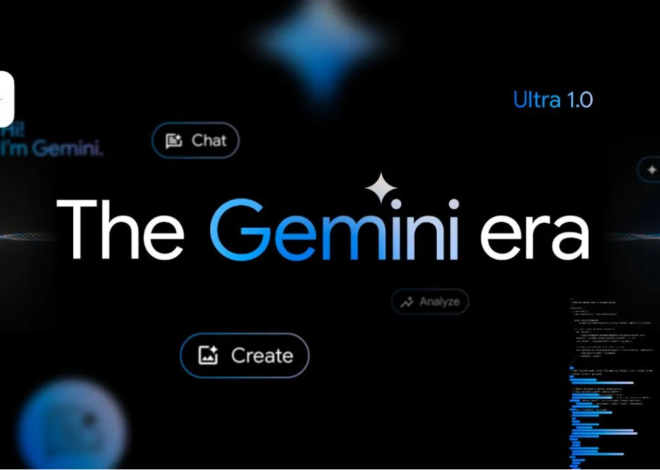
Is my coworker AI? Gannett staff is baffled by bizarre product reviews
Several months following Gannett’s unsuccessful attempt with AI-generated sports articles, employees revealed that the company is now incorporating AI-generated content on its product review platform.
A selection of articles recently uncovered on Gannett’s product review site, Reviewed, has sparked a growing debate: are these pieces the work of artificial intelligence tools or human writers?
The writing found in these articles is characterized by its awkwardness, repetition, and occasional lack of coherence. For instance, a piece titled “Best Waist Lamp of 2023” states, “Before buying a product, you need first to consider the fit, light settings, and additional features each option offers.” Another article about Swedish Dishcloths begins with the statement, “Before you purchase Swedish Dishcloths, there are a few questions you may want to ask yourself.”

The articles feature a section labeled “Product Pros/Cons,” which, instead of providing genuine benefits and drawbacks, presents a single list with a limited number of features. Furthermore, the pages are cluttered with low-resolution images, infographics, and numerous links directing readers to Amazon product listings. As of the time of this report, these articles seem to have been removed from the site.
This type of content has become synonymous with artificial intelligence in the eyes of readers, and Gannett has faced previous controversies related to it. In August, the company conducted a flawed “experiment” involving AI-generated sports articles, resulting in a slew of stories containing awkward phrases like “close encounters of the athletic kind.” Following this, Gannett temporarily halted the use of the AI tool and announced intentions to reassess their tools and processes.
On Tuesday, the NewsGuild of New York, the union representing Reviewed workers, shared screenshots of shopping articles that employees had come across. These screenshots indicated Gannett’s latest attempt to employ AI tools in content production, raising concerns among staff members.
Gannett remains firm in its stance, asserting that the recent “reviews” were not generated using AI. According to Lark-Marie Anton, Gannett’s Chief Communications Officer, the content was crafted by “third-party freelancers hired by a marketing agency partner.”
Also Read | An AI feature has been added to YouTube Music by Google
According to Lark-Marie Anton, Gannett’s Chief Communications Officer, the pages featuring the product reviews were initially published without accurate affiliate disclaimers and did not meet the company’s editorial standards. Anton stated in an email to TheOrcTech, “Updates have been published [on Tuesday].” Essentially, these articles are part of an affiliate marketing strategy orchestrated by workers from another company.
A new disclaimer on the articles clarifies the partnership: “These pages are published as a partnership between Reviewed and ASR Group Holdings, a leading digital marketing company. The products featured are based on consumer reviews and category expertise. The buying guides are produced by ASR Group’s editorial team for marketing purposes.”
Yet, there remains an air of suspicion surrounding these reviews. ASR Group, which operates under the name AdVon Commerce, specializes in “ML / AI solutions for E-Commerce,” as per its LinkedIn page. An AdVon Commerce employee listed on the Reviewed website indicates on LinkedIn that they are skilled in “prompting and editing AI generative text” and leading a team transitioning to ChatGPT and AI generative text.
Adding to the mystery, the credited writers on Reviewed are challenging to trace. Some of them lack other published work or LinkedIn profiles, leading Reviewed staff to question their authenticity, prompting queries like, “Are these people even real?”
When questioned about the marketing company and its use of AI tools, Anton affirmed that Gannett verified the content was not generated using AI. However, AdVon Commerce did not respond to requests for comment, leaving certain aspects of this situation unresolved.
Also Read | Dall-E 3 AI Images Are More Bold, Detailed, and Fun
The controversy surrounding the ambiguous origin of the articles, whether AI-generated or human-created, has erupted just weeks after unionized staff members at Reviewed staged a walkout to negotiate bargaining sessions with Gannett. In an official statement sent via email, the Reviewed union announced its intention to address the issue during the upcoming bargaining sessions.
The union expressed concerns, stating, “It’s an attempt to undermine and replace members of the union whether they’re using AI, subcontractors of a marketing firm, or some combination of both. In the immediate term, we demand that management unpublish all of these articles and issue a formal apology.”
Michael Desjardin, a senior staff writer at Reviewed, believes that the publication of these reviews is a form of retaliation for the earlier strike. Desjardin revealed that Gannett’s leadership did not inform the staff about the publication of these articles. Instead, employees stumbled upon the posts on Friday and noticed glaring issues such as typos in headlines, machine-like phrasing, and other “tell-tale signs” that fell below journalistic standards.
Desjardin expressed his concerns, saying, “Myself and the rest of the folks in the unit feel like — if this is indeed what’s going on — it really dilutes what we do. It’s just a matter of this existing on the same platform as where we publish.”
Also Read | ChatGPT Creator OpenAI Says AI Tools Can Be Effective In Content Moderation
The blurred line between AI-generated content and human-authored work has been a recurring theme in 2023, particularly within media companies. Similar situations arose earlier in the year, notably at CNET, where AI-generated stories were published alongside journalists’ work. These AI-generated articles lacked clarity regarding their production and fact-checking processes, with over half of them containing errors. Clear disclosure about the use of AI only came after media reports, causing confusion among readers and staff alike.
Desjardin pointed out the unsettling nature of the Reviewed content, stating, “This stuff to me looks like it’s designed to camouflage itself, to just blend in with what we do every day.”












